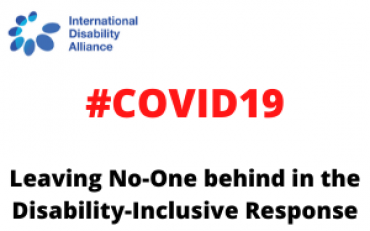This is one story as part of the Voices of People with Disabilities during COVID19 Outbreak series
Names have been changed to protect the individuals mentioned in the story.
On March 25, 2020, the government banned public transport and non-food markets in Uganda. On March 30, President Yoweri Museveni announced several additional measures, including a nighttime curfew, banning the use of all privately-owned vehicles, and closing shopping malls and non-food stores. However, what happens when a person with a disability is in need of medical assistance, and there is no transport available?
This is the story of a child. Akiki was born on November 2018 with Spina Bifida, which caused him an Hydrocephalus. However, his operation was successful and was doing well according to review reports. Some days ago, in the middle of the COVID-19 outbreak, his mother realized the baby's stomach enlarging and had difficulties in breathing. It was during the night. She tried to get on a boda boda [motorcycled taxi] but the driver refused to take her for they feared to be beaten by the police. Many cases have been reported where excessive force to citizens has been applied to enforce the government’s COVID-19 measures. As public transport was restricted, and she had no other means. Desperately, she waited for some time to see whether she could find another means of transport, in vain and this caused a critical delay as the situation was urgent. Her last resort was to walk for about four kilometres to a hospital in Kampala, holding her child in her arms. When reaching the hospital, the doctor explained the food had gone into a wrong opening. It was too late. The baby had passed away.
Minimum services are not guaranteed and there are no measures in place that take into consideration the situation of many persons with disabilities in Uganda, who do not own a vehicle, drive or have ways to obtain transport. This story is also an example of vital information not reaching individuals with disabilities and/or their caretakers. Spina Bifida and Hydrocephalus Association Uganda (SHAU) had put in place a system where parents can contact them or the branch organisation for help, but this mother was not informed yet. This service could have been used to save a life.
Reports from the regions show that care givers are worried about means of transport and food. Parents of with children experiencing Spina Bifida and Hydrocephalus (and other disabilities) often are more vulnerable in times of crisis and have more health care expenses, resulting in a high financial burden. In these difficult times, they are hit harder than others.

